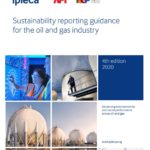Environment Australia and the Department of Family and Community Services are putting together guidelines for companies reporting on sustainable issues, said Environment Australia.
Anne Close, assistant director of the financial sector projects team and Environment Australia, said the guidelines in development aim to encourage Australian companies to report on sustainability issues.
The guidelines have been based on reporting guidelines from the Global Reporting Initiative (GRI), Close said. GRIs Sustainability Reporting Guidelines 2000 represent the first global framework for comprehensive sustainability reporting, encompassing the "triple bottom line" of economic, environmental, and social issues. They propose concrete performance indicators, including 38 indicators on social performance. GRI, set up in 1997 by the US-based Coalition for Environmentally Responsible Economies (Ceres), is preparing to release a draft set of guidelines for 2002 in an attempt to align international standards for reporting issues of governance in the areas of social, environmental and economic impact.
Close said the Australian guidelines are in the early stages of preparation but they hope to release them by the end of the year. The process aims to "Australian-ise" the GRI standards, including reference to domestic legislative constraints and specific issues like salinity. Close said the guidelines have come from company demands for an audit process for sustainability issues.
Meanwhile, Westpac has taken steps to meet anti-banking sentiment releasing its First Social Impact Report developed in accordance with GRI standards. Westpacs Social Impact Report, which attempts to reveal the banks performance across the social, environmental and economic dimensions, is the first of its kind from financial institutions in Australia.
Westpac developed the report in tandem with 10 other international banks in the SPI-Finance 2002 project. Westpac and the Bank of South Africa were the only non-European banks in the group, said Linda Funnell-Milner, head of social responsibility at Westpac. Speaking at the Forum on corporate Sustainability Reporting, hosted by Westpac, Funnell-Milner added that just five of the banks involved in SPI-Finance 2000 have completed reports from a process that began in March 2001. The banks used GRI guidelines as a base for their project.
"From the GRI perspective it was recognised there needed to be a sector-specific subject direction," Funnell-Milner said.
"Working with GRI gave the process another level of credibility but it also gave it another level of clarity."
Regardless of international standards to rest on, implementing these new reporting initiatives is not an easy task, according to Funnell-Milner.
"I have a chairman and chief executive who are passionate about this issue," she said. "I dont think you can do it unless you do it from the top down."
The banks move to address stakeholder concerns about its social, environmental and economic impact met the most difficulty from its supply chains, Funnell-Milner said. Non-core parts of the business such as information technology or telecommunications may be outsourced and those businesses often see compliance to sustainability disclosure guidelines as an add-on expense, Funnell-Milner said.
"The issues in the supply chain are one of the biggest issues for us. When we ask the supply chain to report to us on labour, social and environmental issues, they are not very happy about it because it is seen as a cost add-on," Funnell-Milner said.
Stakeholders such as NGOs (non-government organisations were most interested in disclosure of lending policies, she said.
"What NGOs are concerned about is who we lend our money to and what questions do w e ask of them. We need to be able to ask questions," Funnell-Milner said.



